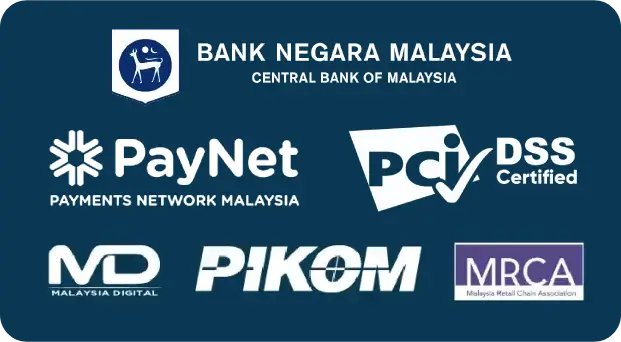
Running an online business in Malaysia has never been more profitable, but also never more risky. With the rise of digital transactions comes a surge in fraud tactics: phishing, card testing, fake chargebacks, and identity theft.
If you’re still relying on manual transfers or low-security payment links, you’re not just risking your revenue, you’re also risking your reputation.
That’s why a secure payment gateway Malaysia isn’t just a nice-to-have, it’s a critical part of your business infrastructure. And if you’re using a Malaysia-based gateway like Paydibs, you’re one step ahead of the fraudsters.
What Types of Ecommerce Fraud Happen in Malaysia?
Before we get into solutions, let’s look at what threats Malaysian online stores are facing:
Type of Fraud | Description |
Card Testing | Fraudsters use stolen card numbers to test small transactions for validity. |
Chargeback Fraud | Customers falsely claim they didn’t receive an item and demand a refund. |
Phishing Payments | Scammers create fake payment pages to steal customer info. |
Man-in-the-Middle | Interception of data between buyer and seller, especially on unsecured sites. |
Each of these can result in losses, penalties, and even account suspension if left unchecked.
How Secure Payment Gateways Like Paydibs Prevent Fraud
Here’s how modern gateways like Paydibs are defending Malaysian ecommerce businesses, automatically, in real-time.
1. 3D Secure Authentication (3DS)
What it does:
Adds an extra layer of verification during credit/debit card payments (OTP or biometric check).
How it helps:
Even if a fraudster has stolen card details, the payment fails without the correct OTP.
💡 Paydibs supports 3DS2, the latest version that works seamlessly on mobile apps and browsers.
2. Tokenisation of Card Data
What it does:
Sensitive card info is replaced with a unique token during transactions.
How it helps:
Hackers can’t extract usable data, even if a breach occurs. Your customer’s payment info stays safe.
🔐 Paydibs uses industry-standard PCI-DSS Level 1 encryption and tokenisation technology.
3. IP and Geo-Fencing Rules
What it does:
Automatically flags or blocks transactions from suspicious IPs or unfamiliar countries.
How it helps:
Prevents common fraud patterns, especially during campaigns with international reach.
🌍 You can set risk rules with Paydibs based on country, currency, or device type.
4. Real-Time Fraud Monitoring
What it does:
Tracks patterns like multiple failed transactions, mismatched cardholder names, or rapid-fire orders.
How it helps:
These patterns trigger alerts or blocks before the fraud is completed.
📊 Paydibs merchants can access a real-time dashboard to review flagged transactions instantly.
5. Built-in Chargeback Management
What it does:
Helps you track, document, and contest chargebacks efficiently.
How it helps:
Reduces revenue loss from false claims and improves dispute win rates with proper evidence handling.
🧾 Paydibs automatically logs transaction metadata for fast and compliant chargeback resolution.
What Happens If You Don’t Use a Secure Gateway?
Here’s the short version: you’re on your own.
- Bank transfers don’t come with fraud protection.
- Manual PayLinks are easy to spoof.
- In-house checkout systems (without PCI compliance) can lead to data leaks.
Beyond financial loss, the real damage is to your brand’s credibility. Once customers lose trust in your payment process, they rarely return.
How to Set Up a Fraud-Protected Checkout with Paydibs
You don’t need to be a developer or fintech expert. Here’s how to get started with Paydibs:
Step | What You Need |
Register | Malaysian business with SSM |
Integrate Checkout | Shopify, WooCommerce, or custom site |
Set Risk Rules | Inside the Paydibs Merchant Dashboard |
Go Live | Accept payments with built-in protection |
⚙️ Paydibs also provides API documentation and integration support for custom platforms.
Conclusion
With ecommerce booming in Malaysia, fraud is evolving just as fast. If you’re not using a payment gateway with built-in protections, you’re not just falling behind, you’re making yourself a target.
Paydibs helps you stay secure without slowing down your business. From 3D Secure and tokenisation to real-time fraud alerts and chargeback management, it’s built for Malaysian businesses that want to grow confidently.
Frequently Asked Questions
1. What’s the safest way to accept online payments in Malaysia?
Using a PCI-DSS certified payment gateway like Paydibs is the most secure method for ecommerce.
2. Does Paydibs help prevent fraud automatically?
Yes. It includes 3D Secure, fraud analytics, IP filtering, and risk rule setup by default.
3. What’s the difference between tokenisation and encryption?
Tokenisation replaces card data with a secure placeholder; encryption scrambles data during transit. Paydibs uses both.
4. Can I customise fraud filters with Paydibs?
Yes. You can block by IP, region, card type, and more via the dashboard.
5. Do secure gateways help with chargebacks?
Yes. Gateways like Paydibs offer built-in chargeback tracking, logs, and dispute support.
6. Is Paydibs compliant with Bank Negara Malaysia requirements?
Absolutely. Paydibs is a BNM-registered gateway and follows all local financial security standards.
Recent Posts
- Payment Infrastructure in Malaysia: Practical Business Guide
- Malaysia SME Payment & Compliance Guide (2026)
- How to Reduce Online Payment Failures: 10 Common Causes & Fixes
- Paydibs – AltPayNet Partnership Advances Financial Connectivity and Inclusion Between Malaysia and the Philippines
- How to Record Payment Gateway Fees in Your Accounts (Malaysia Guide)
Categories
Our Partners :





Paydibs is a leading payment solutions provider committed to simplifying transactions for businesses of all sizes.

